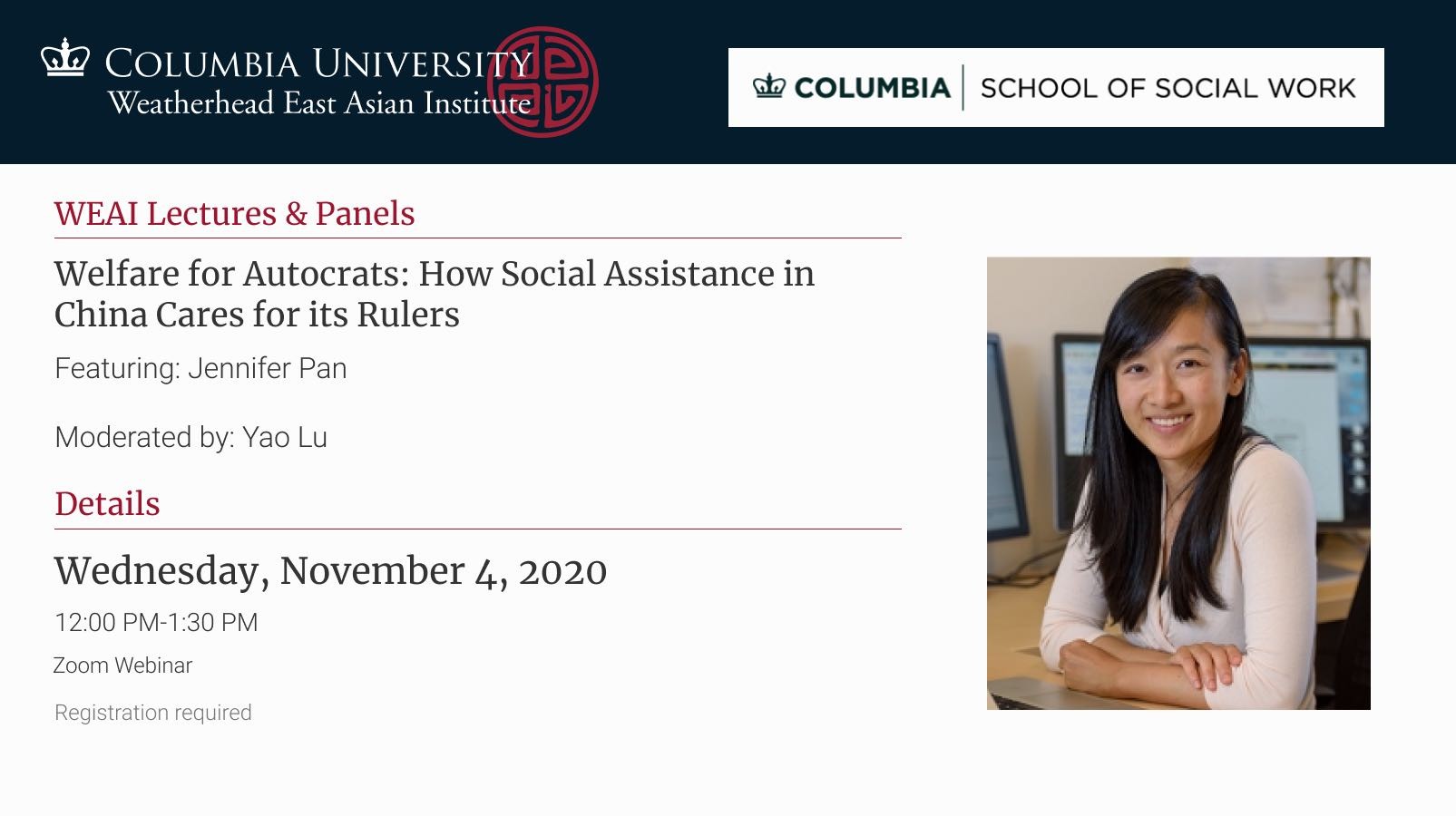Please join us for a lecture with:
Jennifer Pan, Assistant Professor of Communication, Stanford University
Moderated by: Yao Lu, Associate Professor of Sociology, Department of Sociology, Columbia University
About the Event:
What are the costs of the Chinese regime's fixation on quelling dissent in the name of political order, or “stability”? This book project shows how China has reshaped its major social assistance program, Dibao, around this preoccupation, turning an effort to alleviate poverty into a tool of surveillance and repression. Novel datasets and a variety of methodologies show how this distortion of Dibao damages perceptions of government competence and legitimacy and can trigger unrest among those denied benefits. The project traces the transformation of China's approach to enforcing order at the turn of the 21st century and identifies the phenomenon of seepage whereby one policy—in this case, quelling dissent—alters the allocation of resources and goals of unrelated areas of government.
About the Speaker:
Jennifer Pan is an Assistant Professor of Communication, and an Assistant Professor, by courtesy, of Political Science and Sociology at Stanford University. Her research lies at the intersection of political communication, computational social science, and authoritarian politics. Pan focuses on how autocrats control information to shape public preferences and behaviors in the digital age, using experimental and computational methods with large-scale datasets on political activity in China and other non-democratic regimes. Her work has appeared in peer-reviewed publications such as the American Political Science Review, American Journal of Political Science, The Journal of Politics, and Science. Pan received her Ph.D. from Harvard University’s Department of Government, and she received her A.B. from the Woodrow Wilson School of Public and International Affairs at Princeton University. More information on her work can be found at jenpan.com.
This lecture is part of the 2019-2020 annual lecture series on "Using Scientific Evidence to Address Social Challenges in China" cosponsored by the Columbia China Center for Social Policy and Weatherhead East Asian Institute and supported by the Columbia School of Social Work.
